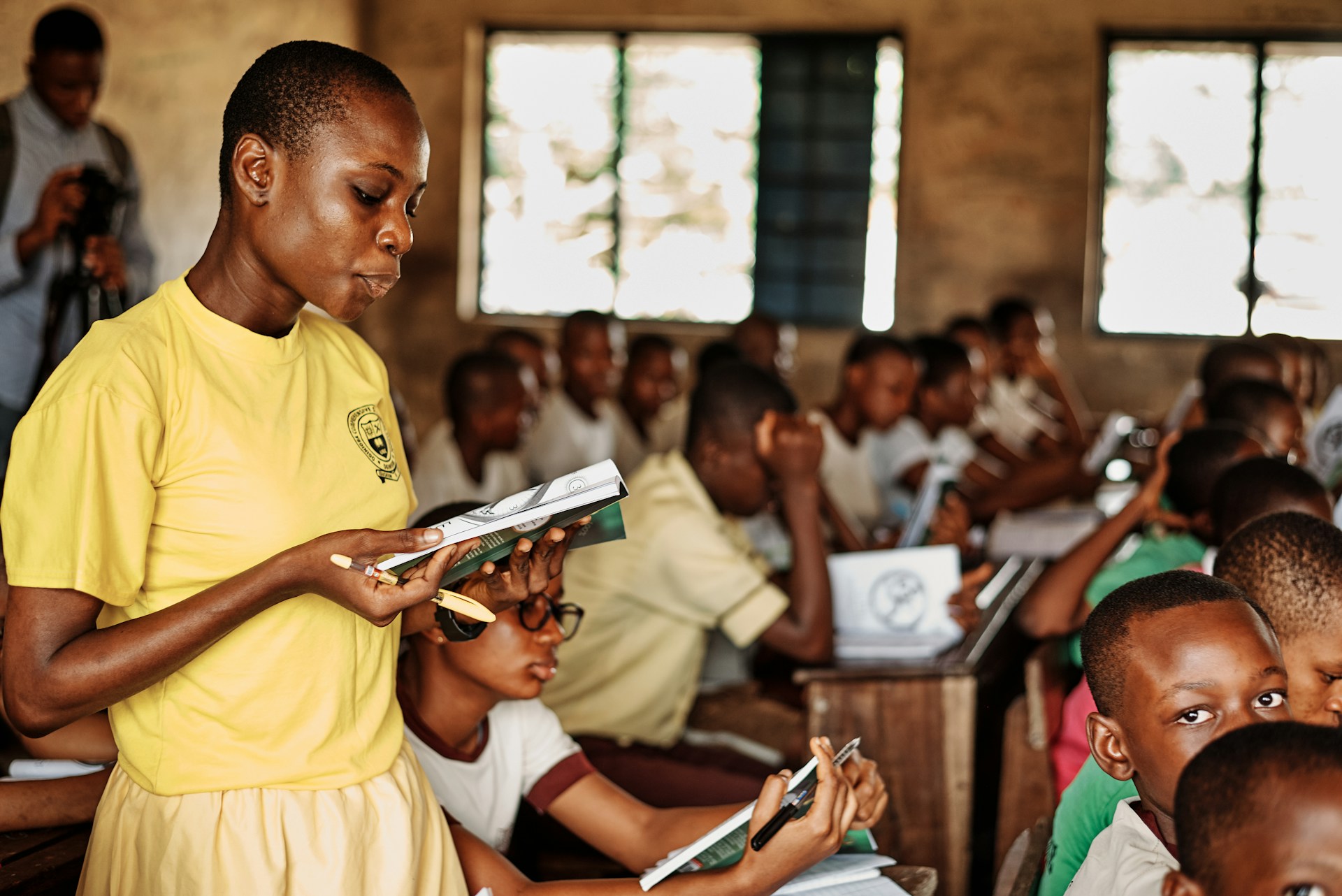by KATIE GARNER

In outsourcing the act of writing to machines trained on Western language and thought, we risk reinforcing the very hierarchies that decolonization sought to undo.
Amid the investment of billions of dollars in artificial intelligence (AI), there are serious concerns surrounding its use: threats to the environment and water supply, the challenge to critical thinking skills, and the theft of hard-won creativity. Yet, few focus on the fact that the information skimmed and scrubbed from the written word is cladding the ideas of future generations, via large language models (or LLMs). To write is to think. To choose to hand that thinking over is to forfeit ideas and language, allowing them to be defined by a written history largely dominated by the voices of white men.
The often multilingual residents of countries in East Africa already have a complex-at-best relationship with historically oppressive colonial languages, as articulated most powerfully by Ng?g? wa Thiong’o, who died recently. By making the change to write in Gikuyu rather than catering to an international audience, he made a statement about his creative process as well as his political ideologies. Here in Rwanda, the official language change from French to English in 2008 was a sign of the break with Belgian colonists and an embrace of the business opportunities that the English language provides. Kinyarwanda remains the language spoken by the majority of the population. Thus, an agricultural economy that seeks to further expand into tourism and international events relies on fluency in English and French for growth. Enter AI?
It is estimated that 40% of institutions on the continent of Africa are already using AI, and here in East Africa, there is a strong and enthusiastic uptake of the technology; 27% people in Kenya use Open AI platforms daily. It is widely embraced in the hope that it will enable more of the leapfrogging of traditional infrastructure that has already been successful with mobile banking and mobile phones. Large language models offer a seductive promise: to save time by doing the thinking and word retrieval for you. It gives permission to rely on the history of the written word to furnish writing and offers short summaries to relieve the burden of reading an entire article or book. This is said to allow for greater flexibility between languages, increased external engagement, and a genuine economic incentive.
It is difficult to argue against a tool that is widely accessible and supportive of increased economic prosperity, particularly for young people. However, the process of reading and writing is transformative because of the thinking that it demands. It exercises the muscle of creativity and innovation, and it allows for opportunities to challenge existing ideas. It is telling that the invention of the printing press in Germany in the 15th century was thought to be one of the most radical and transformative acts of technology in history. The resulting translations of the Bible into languages understood by ordinary people were so controversial that existing power structures sought to discredit the translations and the process.
The democratization of literacy—so that all could read, comprehend, and express through writing, in any language—has toppled governments and challenged established power structures. Rather than being soft and ineffectual tools, stories and words are among the most powerful ways that societies have challenged systems. Arguably, any use of English is a choice to clothe language in the culture and vernacular of privileged white men, but the decision to rely on LLMs to do so limits the capacity to change, shape and subvert it for future generations.
The recent MIT study on the impact of AI showed strong evidence that regular use of chatbots for information and writing has dulled the thought processes of the people using them, a term described as “cognitive debt.” Failure to use brain muscle will inevitably weaken it, a principle apparent to every gym user who took three weeks away from their workout and regretted it. There is a grave risk that enthusiastic uptake of the technology for reading and writing will not only fail to bring the liberating and efficiency benefits that it promises, but also stymie the thinking and the voices that are already sidelined by publishing and journalism industries.
This is particularly significant for women.
Africa Is a Country for more
